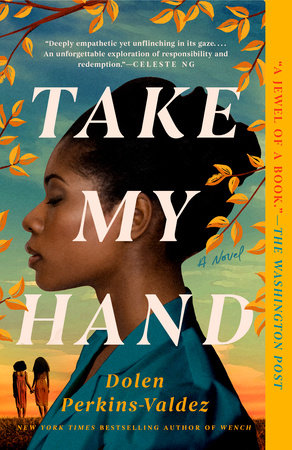READERS GUIDE
Reader’s Guide
Take My Hand by Dolen Perkins-Valdez
Discussion Questions:
1. Perkins-Valdez used the real-life 1973 case Relf v. Weinberger as a launching point for writing this novel. Did you know about this moment in history or similar stories? If not, why do you think these important historical moments are not more widely known?
2. Take My Hand is told through the eyes of present-day Civil revealing to her grown daughter what happened in 1973. Why do you think the author chose to tell the story this way? Why is it important for us to pass on our family histories?
3. History repeats what we don’t remember. With infamous cases like the Tuskegee syphilis experiment and the use of Henrietta Lacks’s cells without her knowledge, what do you think is the importance of medical ethics in today’s society?
4. So many people in this novel have good intentions—even Mrs. Seager believes she is doing what’s right. What are the dangers of good intentions? What responsibility do we have from the fallout of our “good deeds”?
5. Civil and the nurses at the clinic try to make amends for the unintentional harm they have done to patients over the years. Do you think redemption was possible for them?
6. Present-day Civil goes to visit her old friend Alicia. In what ways have the two women changed since their days of working together at the clinic?
7. In the book, Civil recounts, “Our little family managed to live dignified in undignified times. Daddy shined his shoes every morning. Mama wore earrings. These little acts might seem simple to you, but baby, let me tell you. They held back the storm.” What is the significance of living “dignified” for both the Townsend and the Williams families?
8. How do you think India and Erica’s story would have unfolded if Civil hadn’t stepped into their lives?
9. Why do you think Civil never married?
10. Do you think Civil was truly attracted to Mace Williams, or do you think it was a product of Civil’s romantic notion of what a hero is?
11. The ideas of being a savior and being an advocate are important themes in the book. Who in your mind was a savior? Who in your mind was an advocate? What are examples of ways these roles are different?
12. The book is set in Montgomery, Alabama, in 1973. What is the importance of time and place in the novel?

